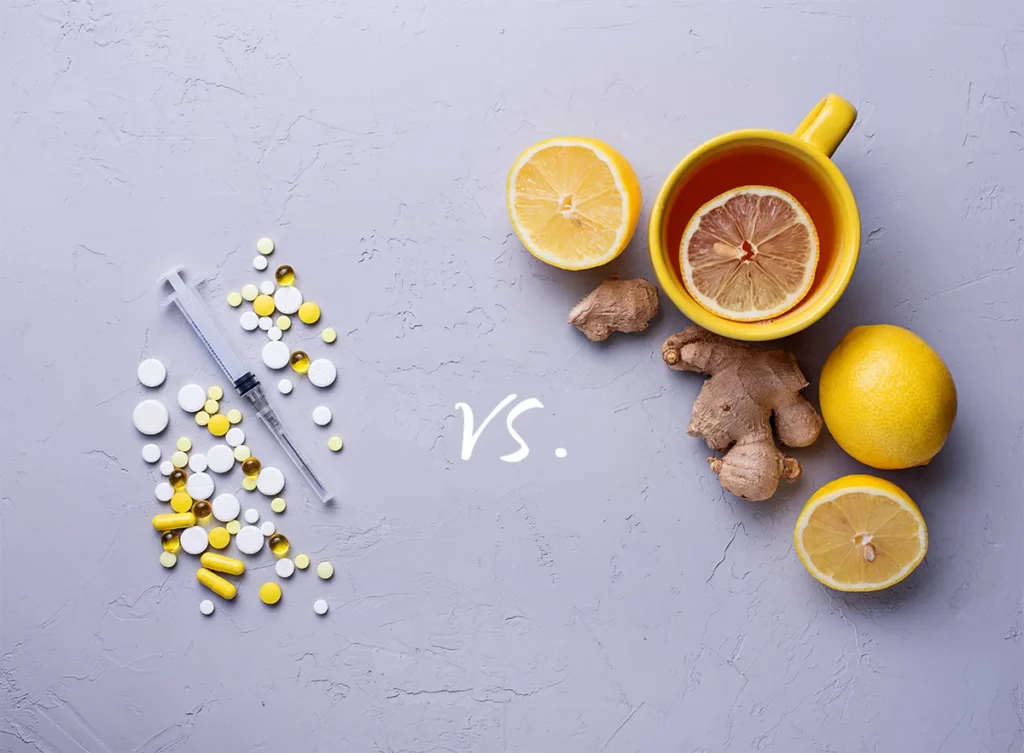How Does Allergy Immunotherapy Work?
Our immune system: vital, complex, and wonderful – except for when it goes rogue. Allergies occur when your immune system has a consistent over-the-top...
Posted on May 25, 2025
Allergy Treatment
Medicine can do wonders for the human body and if you’re an allergy sufferer, you’re probably willing to try almost anything to relieve your symptoms. Some people swear by their home-concocted natural home remedies while others are happy to stick with drugstore antihistamines. So, are natural allergy treatments any better than medications?
Though there may not be quite as much research that has investigated the effectiveness of natural treatments for allergy compared to the abundance of scientific literature surrounding medical interventions, for many people with mild to moderate allergy, it’s just a matter of giving it a good go.
You may prefer a non-drug alternative to allergy treatment for the lower risk of side effects and gentler action. Among other known side effects, oral antihistamines have the potential to cause drowsiness (particularly older generation medications), dizziness, a dry mouth or nose, and headache. Overusing nasal decongestant sprays can result in a medication dependency, known as rhinitis medicamentosa.
The perception of a holistic approach to allergy management can be attractive to some. Instead of just suppressing the symptoms of allergy, many natural remedies aim to remove or minimize the underlying triggers.
Some natural remedies can also be more cost-effective and more easily accessible than drugstore treatments. In fact, some treatments can probably already be found in your kitchen, such as local raw honey, apple cider vinegar, garlic, turmeric, green or peppermint tea, and pineapple.
Natural remedies certainly have some advantages over medications for allergy treatment for the reasons discussed above. For some patients, taking these non-drug approaches can be enough to get you back to your congestion-, sniffle-, itchy-free self but for others, natural treatments may not be enough.
Most healthcare professionals involved in managing allergy will suggest a two-pronged approach to sorting out those pesky symptoms – anti-allergy medications supported by natural remedies. After all, if you can reduce your exposure to allergens simply by having a shower, why not?
Medical treatments for allergies can provide a more predictable response – these medications and their active ingredients have been studied and properly formulated to target allergic conditions, and the clinicians who prescribe them are experienced in their use. If your allergies are severe or persistent, it’s most likely you will benefit from taking allergy medications over natural home remedies alone.
Other non-drug allergy treatments to consider include:
If all of the above fail…
If even antihistamine medications aren’t relieving your allergy symptoms, don’t despair. You still have options with an appropriately qualified ENT doctor with allergy training who may suggest allergy immunotherapy or surgery for a deviated septum.
Our immune system: vital, complex, and wonderful – except for when it goes rogue. Allergies occur when your immune system has a consistent over-the-top...
Berger Henry ENT is pleased to announce that starting on March 12, 2024, we will be offering comprehensive allergy testing and treatment. Berger Henry ENT...